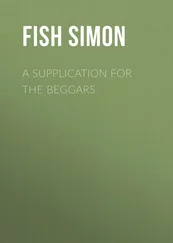“But if she was the bad luck, would not her baby crow die instead of yours?”
Moon looked confused.
“Am I bad luck?” Dadamoshai asked her, looking timid and fearful, as though something was going to bite him.
“Ufff-ho! No, no, why should you be bad luck?” Moon retorted irritably. “Her! Her! She!” She pointed an accusing finger as I cowered behind Dadamoshai’s chair, feeling like a lowly insect. But Dadamoshai did not turn around to look at me.
“Oh dear, oh dear,” Dadamoshai lamented sadly, shaking his head, “I think I am very bad luck, too. My wife died, you know, very young, and my daughter. My father died, too, and my mother died...a cat, also, some chickens, and so many cockroaches I can’t even count. But sometimes my clogs have a mind of their own and do very bad things.”
“Oh-ho, Dadamoshai! You are confusing anything with everything! Making a big kheechoori. Don’t worry—you are not bad luck. Layla is different.”
“How? I don’t understand.”
Moon sighed noisily. “Dadamoshai, you are too old. You don’t understand anything anymore,” she said and stuck out her lower lip, glowering at the floor.
“Okay, come here, you two,” Dadamoshai said, suddenly very alert and businesslike. He capped his pen with a smart click and closed his journal. He motioned us over to the sofa and scooped the sleeping cat off with the newspaper. “Sit down. I want to show you something.” He was tossing around a heavy glass paperweight in his hand. It had blue swirls and glass bubbles suspended inside. “See this paperweight?” he said. He held it up to the light with his thumb and forefinger. We could see the palm trees and sky through it. He positioned his hand above the coffee table and looked as if he was about to drop the paperweight on the glass.
“If I drop this and break the glass, is it good luck or bad luck?”
“Bad luck,” we said in unison.
“If I drop the paperweight, but catch it with the other hand before it breaks the glass, is it good luck or bad luck?” While he waited for our answer, Dadamoshai dropped the glass ball, which he caught expertly with his other hand, an inch before it hit the table. We gasped.
“Good luck or bad luck?” he repeated, looking at us both. His eyes were bright like a chipmunk as he tossed the orb around in his hand.
Moon and I looked at each other. “Good luck,” we agreed. “Because nothing got broke, thank God,” Moon added, crossing her heart. I followed suit. That was the new thing we had both learned watching a nun at the Sacred Heart Convent, where Dadamoshai had taken us for a charity sale. Crossing our hearts was high on our list of priorities. We crossed our hearts several times a day. Sometimes Moon substituted it for “touch wood” or “bless you” when a person sneezed, or “don’t mention it” when someone said “thank you.” She was a prolific heart-crosser.
“So tell me, who is making the luck happen?”
It was a trick question.
“You?” I ventured.
“Are you sure?” Dadamoshai pinned me with his magistrate’s eye, sharp as a pickax.
Moon skipped gingerly from one bare foot to another. “Maybe yes, maybe no,” she said ambiguously.
“Layla is right,” Dadamoshai said. “I am in control here. I am making luck happen. Now listen carefully, you two. All of us can create our own luck, good and bad. We cannot make luck happen for anyone else, understand? This simple truth of life is called Karma. Now I want both of you to go and think seriously about what I just said.”
We both walked off feeling slightly muddled.
The very next day, as if to prove Dadamoshai’s luck theory right, my baby crow died, as well. By then we were too confused about luck to know who or what to blame.
* * *
Later that night, Moon was asleep and I was tiptoeing to the bathroom when I heard the adults talking on the veranda. Both Mima and Dadamoshai were smoking cigars and enjoying a brandy, while Uncle Robi voiced his displeasure with tiny coughs of disapproval.
“She will get a hiding for this,” Mima said. “I have warned Moon. I can’t believe she said Layla is bad luck.”
“Don’t blame your daughter, Mitra,” Dadamoshai said. “Small towns do not let people forget their pasts. In Sylhet, Layla will always be the madwoman’s daughter, the bad-luck child. She will hear it until, sadly, she starts believing it herself. How will she survive? That girl will grow up to be a beauty. Have you noticed how people stare at her? Do you think you can prevent men from taking advantage of her? They will only mislead her, abuse her trust and marry someone else. I know the double standards of men in our society only too well, Mitra. I cannot bear to see anything bad happen to Layla...that child has been through too much already.”
A chair creaked as someone shifted their weight. My uncle coughed. He usually had nothing to add to conversations.
“Dada, what you say is true,” said Mima softly. “It makes me sad, really.” I heard her blow her nose. “I try my best to protect Layla, but I may not be doing enough. I don’t know what else to do.”
“I have been thinking about it,” Dadamoshai said slowly. “Layla is better off here in Silchar than in Sylhet. No one knows of her past here. People will talk and eventually find out. But I have clout in this town, and nobody will dare take liberties with her. She is safe with me. At the very least, I can make sure Layla gets a good education and learns to stand on her own feet.”
Mima laughed. “If anybody can give that child a future, it’s you, Dada. But how will you manage? A young girl needs a mother....”
“I have Chaya. She is a good-hearted, nurturing woman, and she will take care of Layla’s needs,” said Dadamoshai. “And I will be counting on you, Mitra. You have been a wonderful mother to Layla.”
Then, to my surprise, my uncle piped up. He was always so quiet that it was strange to hear his voice. “It will be for the best, Mitra,” he said, in his thin, raspy voice. “But I will miss Layla. She is like our own daughter.”
Mima sniffed. “I can’t imagine our family without her. And what about Moon? Those two fight like crickets, but they are good for each other.” Her voice broke.
“Think about it, Mitra,” Dadamoshai said softly. “Moon will marry someday and leave home, and what will become of Layla then?”
“Moon? Marry?” Mima gave a funny broken laugh. “I have no high hopes, Dada. As long as that child stands on her own feet and bulldozes her way through life, I am happy.”
“I want to take over Layla’s care—as soon as possible,” said Dadamoshai. “These are impressionable years. It will only get harder as she gets older.”
“But she is only seven years old, Dada!” Mima cried. “What am I going to tell Moon? She will be hysterical!”
“Tell her the truth.”
“I can’t do it, Dada.”
“Well, then,” said Dadamoshai, “I will tell her. There will be tantrums, no doubt.”
I could hardly contain my excitement. I crept back to the bedroom. The dim light from the veranda fell over Moon as she lay sleeping. She was sprawled sideways across the bed, her limbs akimbo, round fists balled up as if for a fight. I pushed her to one side to make room for myself and whispered into her ear, “Move over, sister. This is going to be my house and my bed from now on. The next time you visit, you will be my guest.”
She flailed her hands and swatted at me. I was suddenly overcome with love. I wrapped my arms and legs around her and kissed her cheek. For the first time, I realized how very much I loved Moon, and how terribly I would miss her once we were no longer together.
CHAPTER 7
Shortly after Manik left for Calcutta, the monsoon broke with a fury. It poured like the bottom had fallen from the sky. Rain splattered in buckets from rooftops, turning into turbulent streams that raked up mud and debris and furrowed down past our house. The river overflowed its banks. Small koi fish jumped in the paddy fields and ragged children vied with one another to catch them in broken bamboo baskets. The sky was a deep asphalt-gray. Clouds darkened after a pause, only to gather forces for another deluge. Occasionally a rainbow throbbed in the sky, and sometimes the evening ended with a poignant, cloud-filled sunset.
Читать дальше












